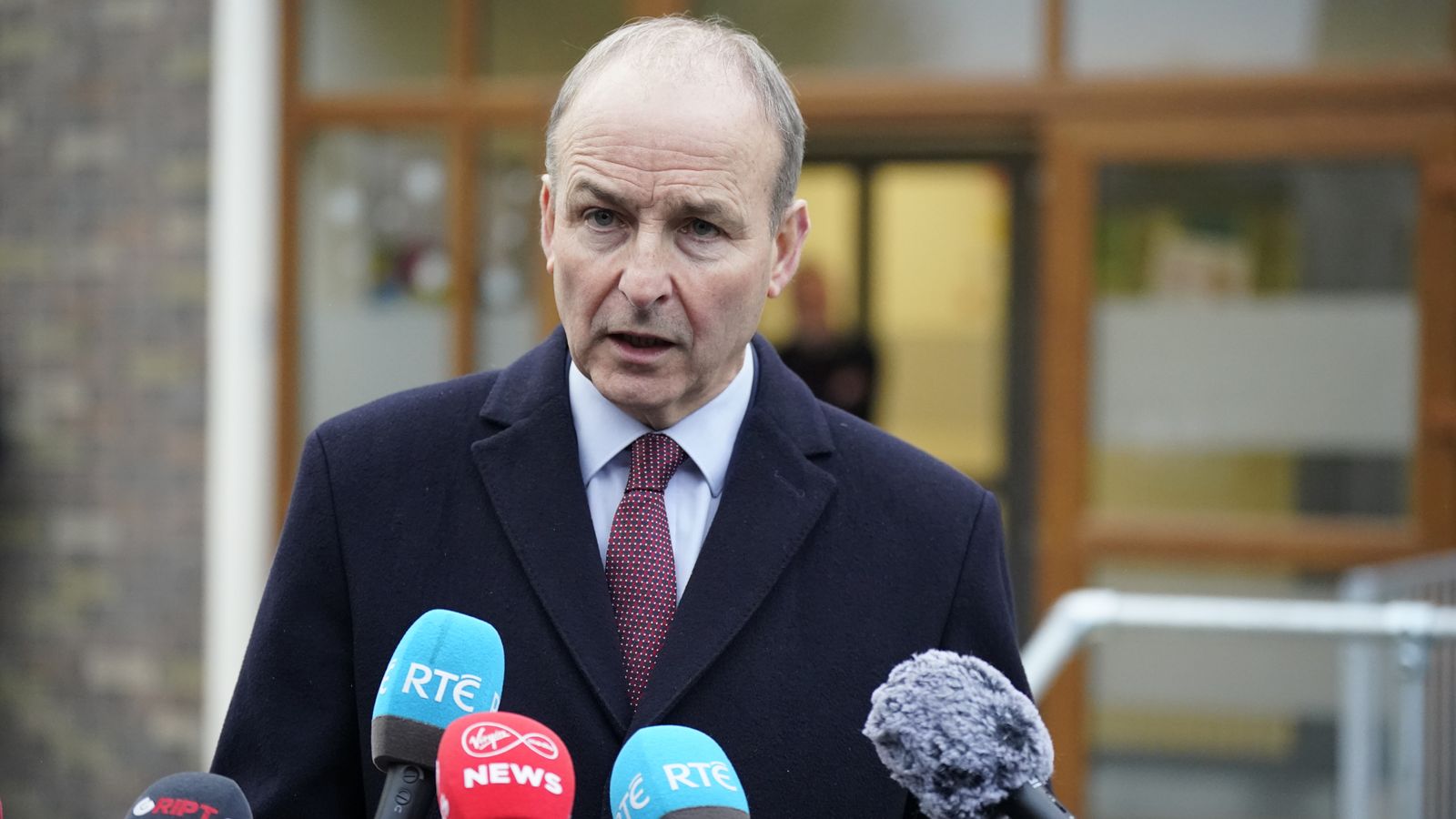Irish government launches legal challenge against UK’s Northern Ireland Legacy Bill


The Irish government is to bring a legal case against the UK under the European Convention on Human Rights (ECHR).
The inter-state case is over the UK‘s decision to bring in the Northern Ireland Troubles Legacy Act, deputy premier Micheal Martin has confirmed.
The act became UK law in September 2023. It looks to end legal proceedings relating to the Troubles by granting immunity to people who cooperate with the new Independent Commission for Reconciliation and Information Recovery (ICRIR).
Politics latest: Early Christmas present for Rishi Sunak
On the UK side, the move was welcomed by soldiers and their families, following various historical prosecutions.
But there were warnings it would breach the ECHR as granting amnesties has previously been found by the European Court of Human Rights (ECtHR) to be incompatible with a country’s obligation to have a way for unnatural deaths and allegations of torture to be investigated.
Complying with the ECHR is part of the Good Friday Agreement.
Mr Martin said the decision was made “after much thought and careful consideration”.
He added: “I have consistently adopted a victims-centred approach to this issue. We are not alone in our concerns.
Advertisement
“Serious reservations about this legislation have also been raised by a number of international observers, including the Council of Europe’s Commissioner for Human Rights and the UN High Commissioner for Human Rights.
“Most importantly, this legislation is opposed by people in Northern Ireland, especially the victims and families who will be most directly impacted by this act.
“In particular, we have concerns around provisions which allow for the granting of immunity, and which shut down existing avenues to truth and justice for historic cases, including inquests, police investigations, Police Ombudsman investigations, and civil actions.
“Even in cases in which immunity is not granted,’reviews’ by the proposed body, the Independent Commission for Reconciliation and Information Recovery are not an adequate substitute for police investigations, carried out independently, adequately, and with sufficient participation of next of kin.”
When the act was passing through parliament, the UK’s Northern Ireland Office said it believed the law was in compliance with the ECHR.
This was due to the immunity being matched with the investigatory power of the ICRIR.
Sky News Monday to Thursday at 7pm.
Watch live on Sky channel 501, Freeview 233, Virgin 602, the Sky News website and app or YouTube.
September: Northern Ireland legacy bill approved by MPs – but legal fight could be coming
The UK government stated at the time that “there is some support for the concept of amnesties in ECtHR jurisprudence, which recognises that the use of an amnesty can further the objective of reconciliation”.
According to the House of Commons Library, the act “would create a conditional immunity scheme, providing immunity from prosecution for Troubles-related offences for individuals that cooperate by providing information to the ICRIR.
“Future prosecutions would only be possible where immunity was not granted, following a referral from the ICRIR.
“However, it will not be possible to grant immunity to an individual who has already been convicted, or if a prosecution has already begun against them.”
It would also:
• Prevent non-ICRIR investigations into events from the Troubles;
• Prevent Troubles-era prosecutions not involving death or serious injury;
• Stop civil claims related to Troubles-era conduct;
• Stop non-advanced inquests continuing and any new inquests starting;
• Start a programme of memorialisation of the Troubles.